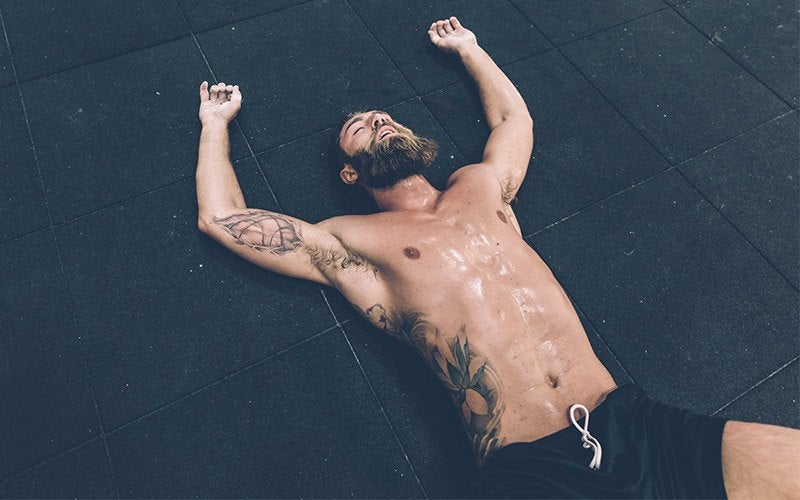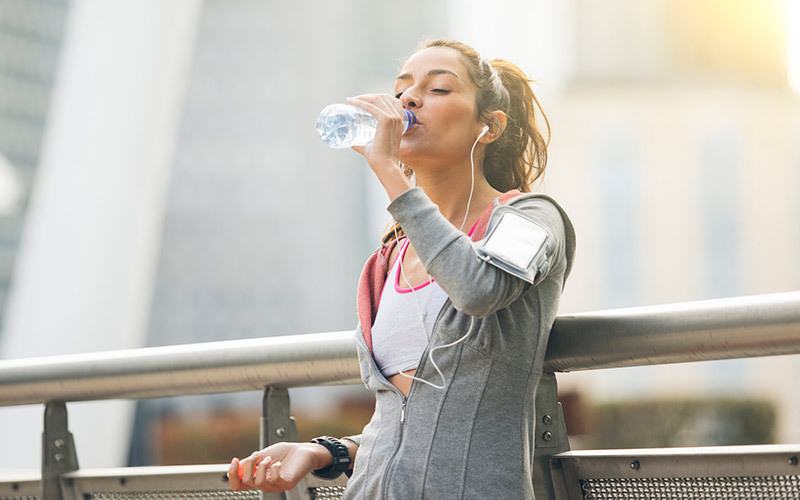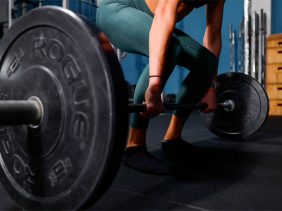Dehydration: What happens when you don’t drink enough?
 ©mihailomilovanovic
©mihailomilovanovic
Your body is made up of 60% water. Losing just a couple percent of that can already lead to dehydration. Learn how to recognize the symptoms in this article.
Water is responsible for various processes in your body. Among many other things, it’s involved in the transport of nutrients, keeping your body cool, and lubricating your joints.
Consuming too little fluids over a long period of time can lead to various problems, so you should make sure to drink enough water throughout the day. We say water specifically because other high-sugar drinks like juices and sodas aren’t the best solution to prevent dehydration.
It’s better to go for low-calorie drinks, such as tea.
Dehydration – Definition
Dehydration, or hypohydration, is defined as a reduced amount of water in your body, which can lead to physical discomfort, restrictions, and even death (terminal dehydration).

Dehydration – 3 Types
Dehydration can have 2 different main causes: you’ve either taken in too little liquid over a longer period of time or lost too much over a shorter period of time. Basic differences in how we dehydrate have led experts to distinguish between 3 types of dehydration.
These types depend on the ratio of water and electrolytes that your body has lost. If you lose them in the same proportion, you’re experiencing the isotonic form. This is what happens when you lose a lot of blood, for example.
If you lose more water than electrolytes, it’s called hypertonic dehydration. This is what happens when you have a fever, or when you sweat a lot during a workout.
Finally, a hypotonic type also exists, when the body loses more electrolytes than fluid. This type of fluid loss can be easily remedied by drinking an isotonic drink because any excess water can be simply eliminated again.
When it’s hot outside, dehydration can happen even more quickly while exercising in the heat. Be sure to keep an even closer eye on your fluid intake when exercising in the heat.
Dehydration – Symptoms and Causes
Thankfully you can’t suddenly become dehydrated because it’s a process that happens slowly and gradually. Unfortunately many people don’t recognize, or misinterpret, the first symptoms of dehydration. That’s why we’ve put together a list of the symptoms that signal that your body needs to start drinking water.
Onset of Dehydration
One of the most common signs that you haven’t been drinking enough fluids is a headache. But concentration problems, tiredness, dizziness, and dark urine are signs of the onset of severe dehydration as well. A dry mouth is also a clear signal from your body that you should drink something.
Thirst is probably the clearest signal that your body needs to hydrate, but this feeling is often confused with hunger. Also you might not feel thirsty at all, even though you’ve already drunk too little.
Causes of Dehydration
One of the main causes of dehydration is not drinking enough fluids. In addition, medication can affect both the feeling of thirst and urine flow, thereby making dehydration worse.
Other illnesses and symptoms that may also cause dehydration include kidney problems, dementia, fever, vomiting, and diarrhea. In a similar way, throat and mouth problems can also affect your feeling of thirst and therefore lead to you drinking less.
Dehydration – Consequences
The more severe and life threatening symptoms of dehydration include muscle cramps, constipation, and nausea as well as circulation problems. In very extreme cases, kidney failure, unconsciousness, and death may occur.

Dehydration – When Should You Drink More?
In certain situations you should definitely pay more attention to adequate hydration to avoid the negative consequences. During intensive physical work or exercise, you need enough water to keep up your performance. But you also need to drink more during pregnancy and while breastfeeding, so that both you and your child get enough fluids. Find out more in our article, 5 tips for drinking more water.
In hot weather, when you sweat a lot, and also when it is particularly cold, you should make sure to drink enough. Cold air absorbs less moisture than warm air and therefore dries out your mucus membranes more quickly, which is also why your nose often feels dry in winter.
Conclusion
- Dehydration is the excessive loss of water from your body.
- Some of the most common signs of dehydration are headaches, dizziness, fatigue, and dark urine.
- Thirst is often mistaken for hunger.
- Medications and illnesses can have a negative effect on your feeling of thirst.
Sources for this article
We at foodspring use only high-quality sources, including peer-reviewed studies, to support the facts within our articles. Read our editorial policy to learn more about how we fact-check and keep our content accurate, reliable, and trustworthy.

































